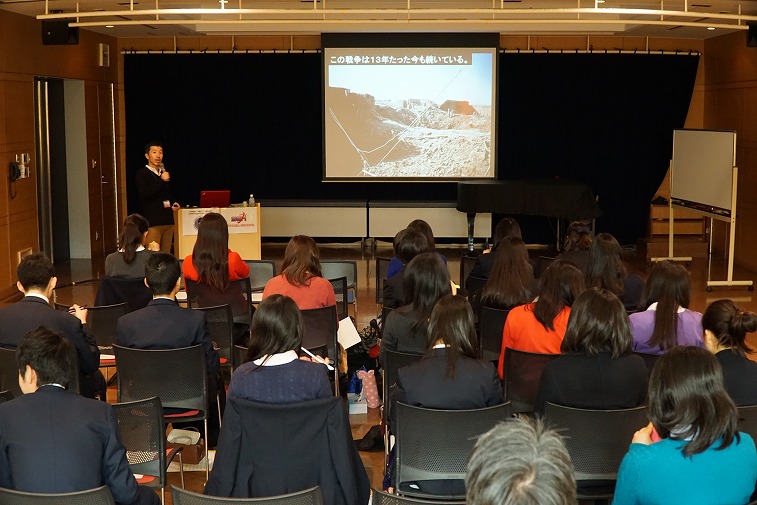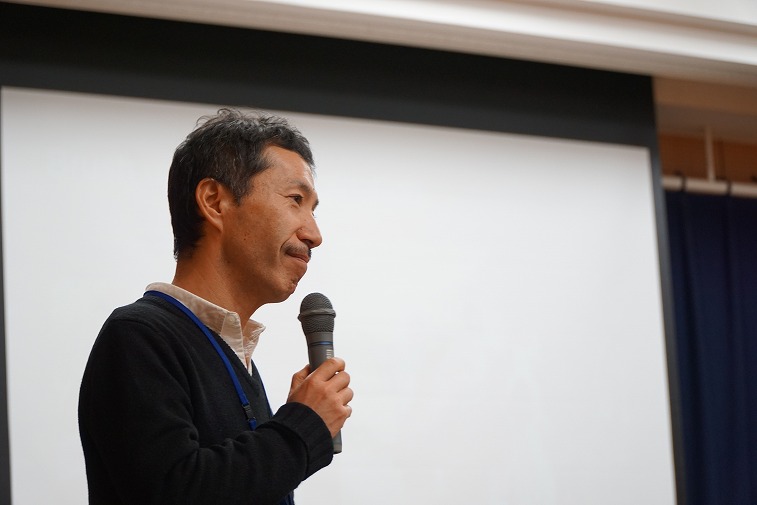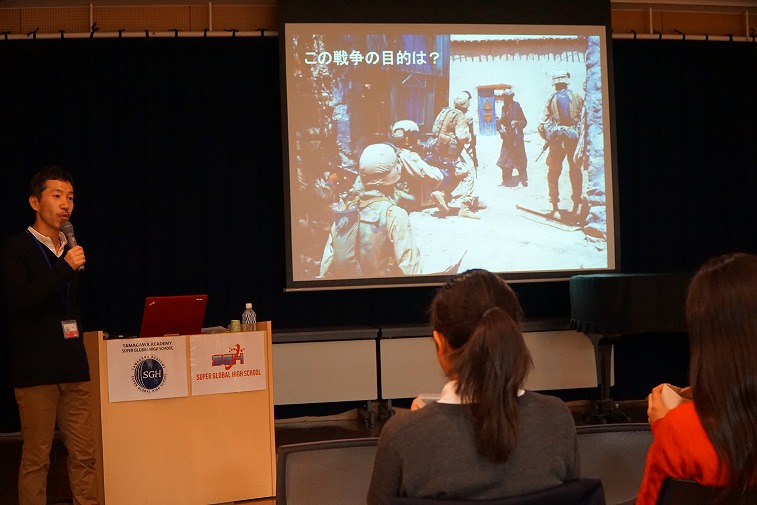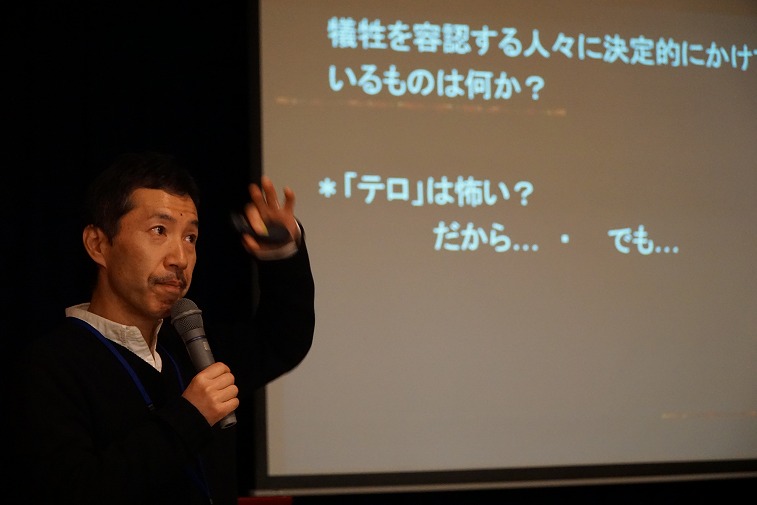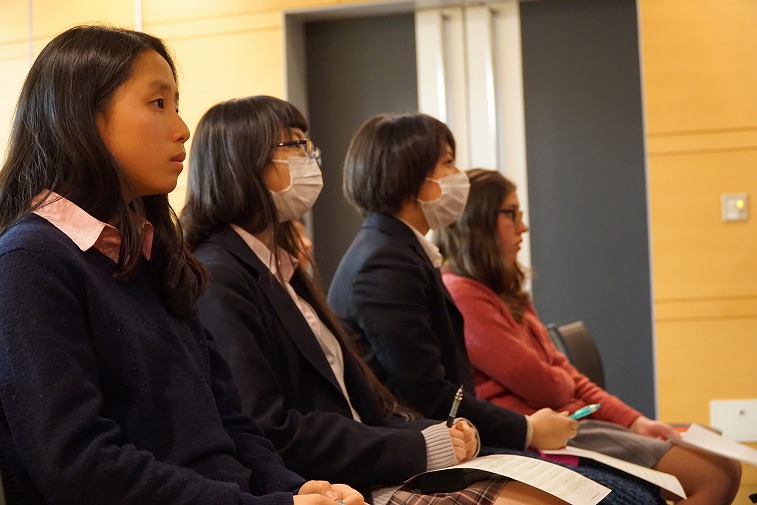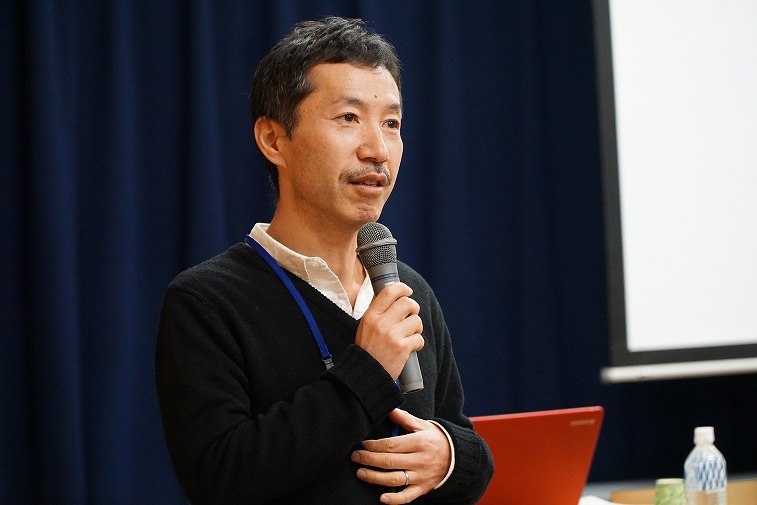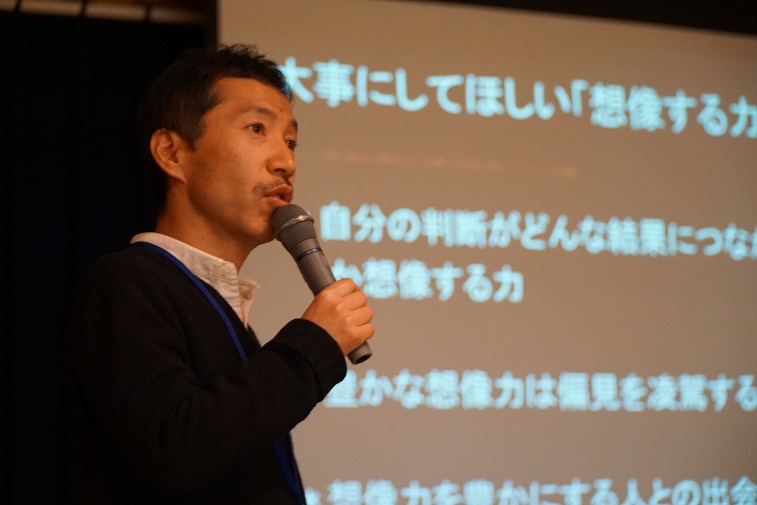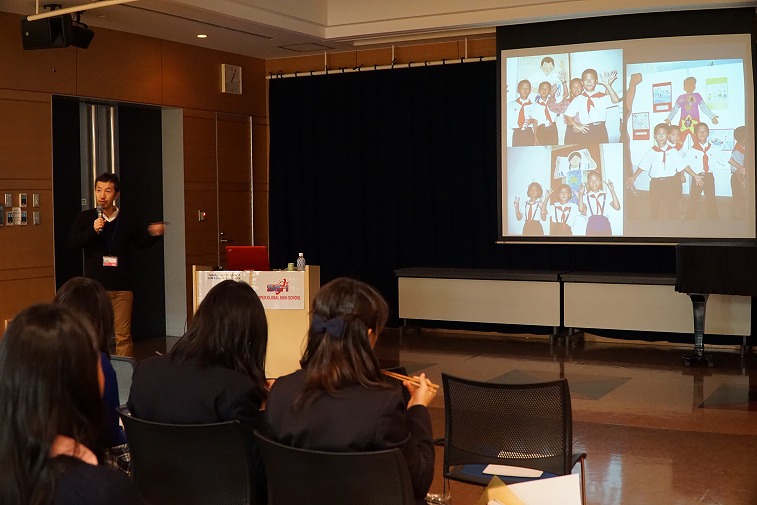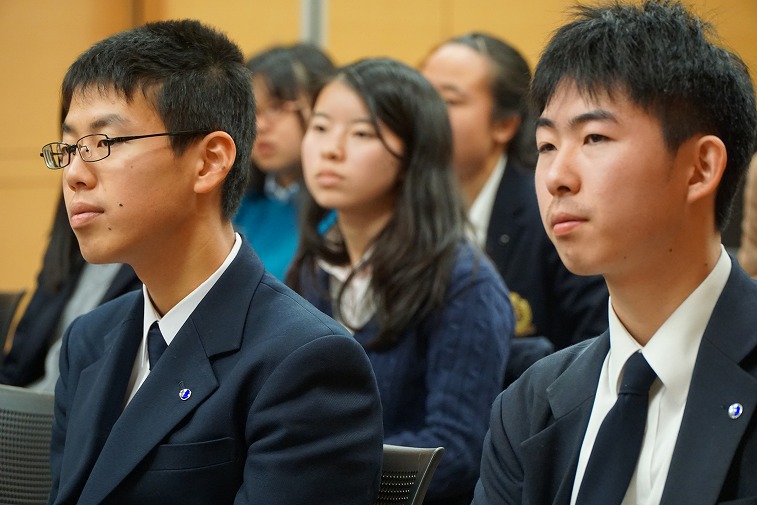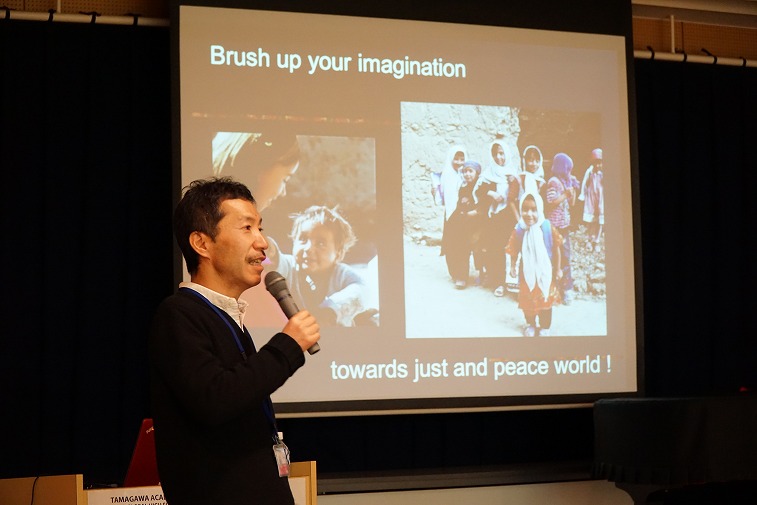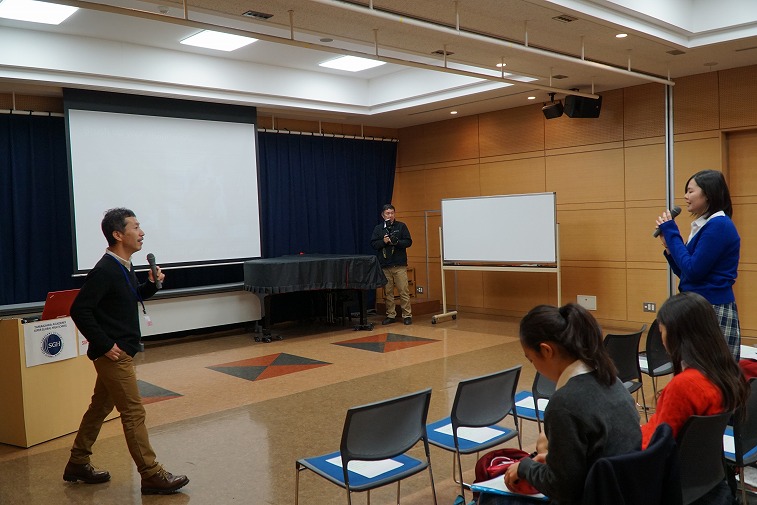The 15th lecture of the Global Career Lecture Series, the first one this year, was given by Toshihiro Shimizu, who was a director at the NGO “Japan International Volunteer Center” (JVC).
From this month, 12th graders (third grade high school students) have fewer classes and didn’t come to school on this day. Therefore, only about 30 10th and 11th graders were present at the lecture. Most of them have attended previous lectures, and before the start of the lecture, the hall was filled and the students were waiting with interest.
Mr. Shimizu told the audience, “I’m going to talk with the keyword ‘imagination’ in mind,” and told the students about the experiences that he had as an international volunteer for many years. He focused on “antiterrorism” and the work JVC had been doing related to North Korea.
At the beginning, Mr. Shimizu covered the Paris terror attacks and the antiterrorism campaign and showed reactions from around the world including Japan. He explained that he had doubts about the rising mood that hostility and prejudice are growing as a result of the continuing fight against terror..
He spoke about the fight against terror in Afghanistan, which has continued for over 13 years since the 9.11 attacks, and also the terror attacks in Palestine in the summer before. He spoke about the number of lives lost and questioned how we should think about antiterrorism measures.
The students thought about the question in light of the facts Mr. Shimizu noted. They continued to listen to him thinking of the domestic situation.
Mr. Shimizu looked back on why he started his work at the JVC: When he learned through news reports that such problems still occurred in our time, he asked himself, “Should I do something?” and he couldn’t help but visit the JVC.
After that, he actually lived with a lot of people in the places where the fight against terrorism continued. He spoke about what he had felt and whether the measures against terrorism were right.
Mr. Shimizu emphasized that not all the people that face military sanctions were terrorists; in fact, we didn’t realize that all the people living in these areas were all impacted by the attacks. Using our imagination and keeping an open mind could help us resolve such problems. We should value meeting people to broaden our understanding.
Next, Mr. Shimizu spoke on another topic, the JVC’s interaction with North Korea, which is a country that is both the closest geographically and the farthest politically to Japan. Using examples from his own experiences, he said, “After meeting North Korean people, I became able to see them through new eyes, without so much bias and guesswork.” and “Through interaction with Korean elementary school students and teachers we were able to learn about each other as individuals.” His story made all the students think about how relationships with the neighboring countries should be.
After hearing Korean children saying, “I hate Japan, but I’m happy to make Japanese friends,” a student in the audience asked Mr. Shimizu, “Why do they hate us? What information about Japan is given to them?” Students got a chance to see a real view of North Korea beyond the information given in media reports.
At the end of the lecture, Mr. Shimizu quoted Nelson Mandela’s words “It always seems impossible until it’s done,” and left with the message, “In order to overcome prejudice and advance, I want you to have interest in others and imagine what their situation is. Then, actually meet them and make the most of the experience..”
In the question and answer session, a student remarked, “I realized that volunteerism can not only do good but also change the nature of the problem itself,” The other students nodded in agreement. Mr. Shimizu then sincerely said “I know we are same, no matter where we live. So, I can become friends with anyone, and it’s my right.”




